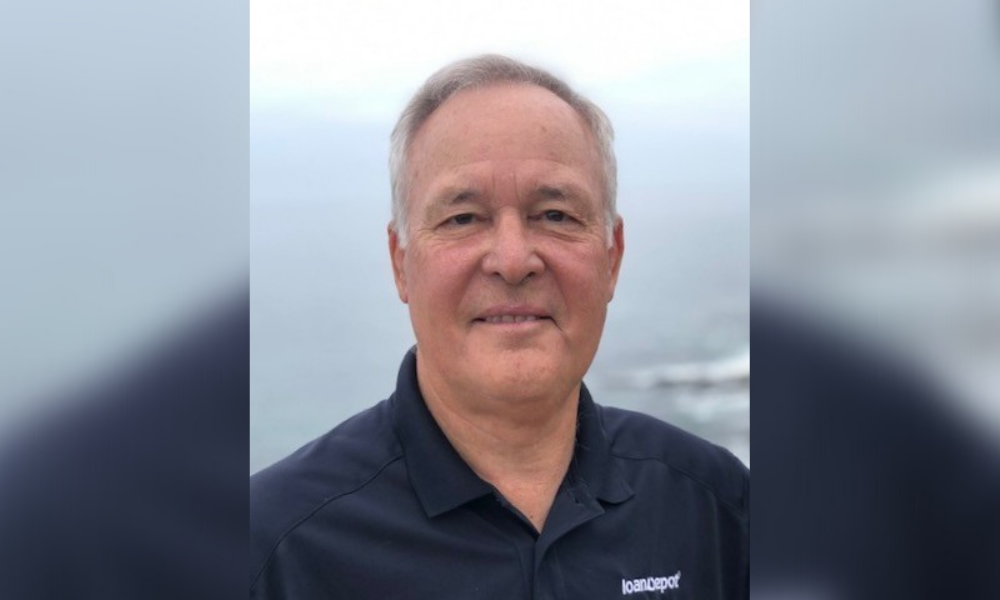Industry veteran on what it takes to succeed in the mortgage business

Dan Hanson, loanDepot’s executive director in market retail, wants to give something back to the industry he has devoted most of his working life to.
Hanson, who will be featured later this month as one of this year’s MPA Housing Industry Icons, has developed what he calls a “give back to the industry concept”, producing five-minute long videos in which he offers loan originators advice about his experience in the mortgage sector.
Most notably, he discusses the qualities he thinks are needed to make brokers stand above the crowd and ultimately succeed.
Arguably in the twilight of his career, he appears to have found a new niche, as he has so far amassed up to 40,000 views for his popular videos on LinkedIn.
“It’s basically to help everybody, including the people that work in my company, to benefit a little bit about what I learned working with all these tremendous people and what made them successful, and what made them separate from the rest of the thousands of originators that only do a few loans a month,” he said.
Having worked in the mortgage industry since 1985, primarily in retail but also in wholesale, he reckons he has managed more than 100,000 loan originators in that time.
Read more: The three main challenges facing small mortgage lenders
During the interview with MPA, the industry veteran mentioned the word ‘mentor’ only twice, but it’s patently clear he wants to inspire the next generation of loan originators.
“There is no real pathway to becoming a mortgage banker - there’s no curriculum,” he said.
Skilled labor shortages in an industry where the average age of a retail originator is more than 50, is a major concern for Hanson.
“We don’t have 25-year-olds entering our business,” he said. “So, the first question we’re going to have to ask is how do we grow our industry?”
Education is key, but with an industry “that doesn’t recruit from colleges very much”, Hanson feels he has a role to play.
“I want every originator who comes into this business, not to just look at somebody as a transaction, not to just look at this as an individual broker kind of deal, but as part of our professional business community,” he said.
Asked if he could identify a pivotal moment in his career which forced him to reassess the state of the industry, he said: “It was my experience in 2008 and how we got sidetracked by Wall Street, underwriting guidelines that weren’t appropriate.
“It was terrible, and I think that the professionalism of our industry took a pretty big hit during those years. For the first time, we realized how complicated our business was.”
For a while the entire mortgage industry appeared to teeter on the brink of collapse, and, even though the crisis passed, it left an indelible mark on Hanson.
Read more: loanDepot welcomes two new board members
Today, in a world heavily reliant on technology and where borrowers expect more from their lenders, originators face a whole new set of challenges, but there are “three intrinsic patterns” that determine success or failure, irrespective of the era they live in, according to Hanson.
“You have to be a very competitive person,” he explained. “You take a lot of bruises, but you have to be able to compete and get off the mat when you get knocked down. A lot of people just don’t have that intensity.
“Number two and probably the most common problem is that a lot of people don’t think they deserve to be successful. It’s a subconscious kind of thing that’s built up over time by either parents, teachers or friends and they don’t even know it. I see that a lot - people with great talent that just don’t understand why they’re sabotaging themselves so much.
“Some people also have an ability to prioritize what’s important. They delegate and focus their time and energy on the most important aspects of our industry, which is building relationships, product competency and the ability to communicate with people in a timely and sincere way,” he said.
He added that he had learned to be a lot less critical and that he spent more time listening to people than he used to. “Sometimes you just need to sit back and have a little bit of grace for the circumstances you’re dealing with, and you’ll be surprised how that opens people up,” he said.
However, he was highly critical of the way originators utilized social media. “By and large they are terrible, and it’s because it’s a new skill-set they have to learn. They have to learn they’re dealing with consumers as opposed to just real estate partners – it’s a totally different marketing strategy, and they’re not equipped to do it,” he said.
Much of that may be due to the fact that consumers are now able to shop for real estate on their own without the need for a realtor, placing originators at the “top of the funnel” and relatively unprepared.
He said: “We have to figure out how to focus our marketing on the consumer, which is a much more difficult and complex issue - and that’s where social media comes in.”
Asked what advice he would have given himself as a young man starting a career in the mortgage industry, he said: “I would have been more focused on understanding marketing than I would have been on transactional knowledge.
“An old mentor of mine made a comment that I never really thought was smart until now. He said you should live on the income you make from your purchase business, and you should save the money you make on your refinance business. That was very good advice.”



